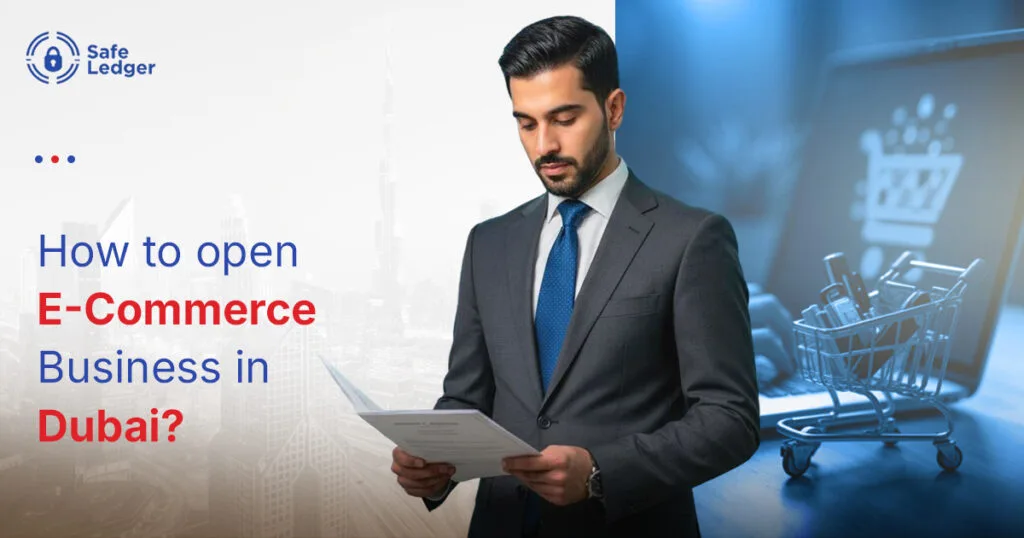An e-commerce business sells goods or services online through a website or digital platform. Customers browse products, place orders, and receive deliveries without visiting a physical store.
Key advantages of e-commerce businesses in the UAE are:
- The business operates online instead of using a physical shop.
- Customers complete browsing, ordering, and payments digitally.
- Platforms like Amazon and Noon show how online selling works at scale.
- In Dubai and the UAE, businesses must obtain a valid e-commerce license.
- The e-commerce business license in the UAE allows legal operations, bank account opening, and online payments.
- The UAE offers strong market potential with high internet usage and spending.
The robust market activity in Dubai, UAE, makes launching an online e-commerce business an appealing proposition.
The Different E-Commerce Business Models
Before initiating operations, an entrepreneur must select an appropriate business model. This decision dictates the primary customer base. The most prevalent types of e-commerce business models include:
-
Business-to-Consumer (B2C)
This is the most widespread model, where the business sells products or services directly to individual end-users. Examples encompass online apparel stores, electronics retailers, and food delivery services. This represents the quintessential business-to-consumer e-commerce structure.
Examples: Amazon, Noon, and Namshi, these platforms sell directly to end consumers who shop for fashion, electronics, and daily essentials.
-
Business-to-Business (B2B)
In this model, the business targets other companies as its customers. This could involve selling bulk office supplies online, providing software solutions to corporations, or acting as a wholesaler to retail businesses.
Examples: Alibaba, Tradeling (UAE-based), and Salesforce, connect companies with suppliers or provide enterprise solutions.
-
Consumer-to-Consumer (C2C)
Here, the business facilitates transactions between individual consumers by providing a platform. Revenue is typically generated through listing fees or commissions on sales. Platforms like Dubizzle exemplify this model.
Examples: Dubizzle, eBay, and Facebook Marketplace; users can buy and sell used goods, cars, or property directly.
This model sees a brand manufacturing its own products and selling them directly to consumers via its proprietary website, thereby eliminating intermediaries like retailers. D2C is gaining traction among different e-commerce business models as it affords brands complete control over customer experience and branding.
Examples: Adidas, Glossier, and The Giving Movement (UAE brand). These companies manage their own online stores to control customer experience and brand identity.
Understanding these different e-commerce business models is crucial for formulating an effective business strategy. For instance, a business to consumer b2c e-commerce platform requires strong digital marketing efforts, whereas a B2B platform emphasizes building sustained client relationships.





